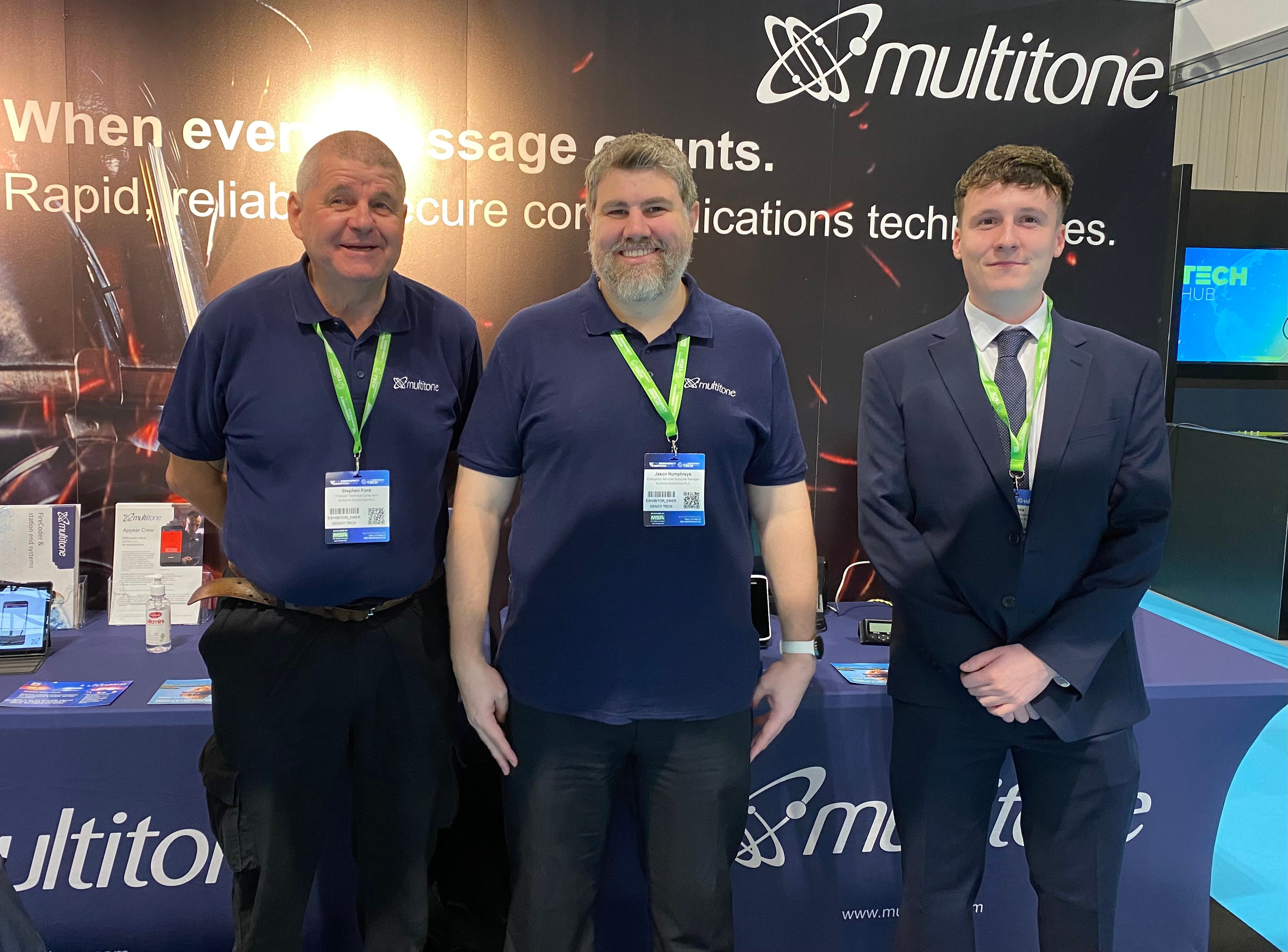From grandfather’s workshop to critical comms specialist: a passion ignited

Stephen Ford joined Multitone Electronics in 1980 and is one of the company’s longest-serving employees. A Principal Technical Consultant for Multitone, Stephen provides technical support and designs bespoke systems for emergency services in the UK and overseas. In this article, he reflects on his experiences over the past four decades and explains the inspiration behind his life-long passion for engineering and telecommunications.
What initially sparked your enthusiasm for engineering?
I’ve loved engineering since I was about 12 years old. I spent evenings in my grandfather's workshop; it was a haven of creativity filled with tools like welders, drill presses and power saws. Here, I witnessed his passion for making things come to life, a passion that became mine.
One particular memory springs to mind. In 1976, my school entered the BP Build a Car competition, and I was heavily involved in the project. We built a unique car – the Broadland Wasp. It gave us as students an opportunity to demonstrate our creativity and innovation. It was a pivotal moment in my journey to becoming an engineer, a crucial first step in developing a life-long love of the profession and everything that it offers to young people starting out in their careers.
You started your career at Multitone in 1980. How has the company changed in that period - and what has not changed?
The company has always felt like a family, and indeed a lot of people that have been employed over the years include family members. Multitone’s senior management are more accessible now, more so than when I started in 1980.
What project or challenge stands out as a defining moment in your career to date?
The first RNLI COACS project moved into the GD92 arena within Multitone (GD92 is the software protocol used for communication by the UK government Home Office). This moved me away from software development to a more customer-facing role.
Looking across your accomplishments up to this point, what are you most proud of?
In my late 20s, Multitone sponsored me to undertake an Open University degree; this transformed me from a factory support engineer to a software developer, building production line software for our new pagers.
Project-wise, I think the two generations of the RNLI COACS systems are big achievements for me. The first was in 1999, and the second in 2018.
The engineering landscape has evolved significantly throughout your career. What are the biggest changes you've witnessed?
Computers and software systems have taken over, without doubt. When I first started we didn’t have a single PC within the production environment, now everyone has a PC or a laptop. Engineering departments would have a secretary to type up all of the notes and documentation – today we all do that ourselves.
What advice would you give to your younger self, just starting out in engineering?
It may seem trite, but getting a good education is the most important thing. I spent two years full time at Norwich City College, studying radio and electronics, with day release after that to study computers.
What qualities are essential for success in engineering in critical comms?
Two things immediately come to mind: Thinking outside of the box, finding solutions where others can’t… and communicating with customers to understand their requirements.
Can you describe the skillset and experience needed for those who wish to follow in your footsteps?
People need a broad range of skills, not just in the latest technologies but also in those legacy skills, such as a background in electronics, radio etc.
Another is being able to talk to customers at all levels from senior managers to the tech guys on the ground, and to be able to clearly explain what the solution is you’re offering and how it meets the customer’s needs.
What are some key pieces of advice you'd offer to someone stepping into this role?
My advice would be to continue to learn new skills and keep abreast of how the market is changing.
What excites you most about the future of this field and the projects future employees might encounter?
Seeing how the fire services will evolve is going to be fascinating. We’re still using GD92, which is a protocol that is almost 30 years old; it has proven its worth over all of those years, and it will be interesting to see how it will cope with the changes to the communication systems becoming available.
Which Multitone Electronics solution most excites you – and why?
I’m still very excited about the range of products that we sell to emergency services and I still get a buzz out of designing and configuring a solution.
Peter Lomax is Multitone’s Sales and Marketing Director:
“Stephen Ford’s contribution to Multitone over these past 40 years is outstanding. His deep expertise in critical communications has been instrumental in the development of technological solutions which support our emergency services, and critically are saving lives."
)
)
